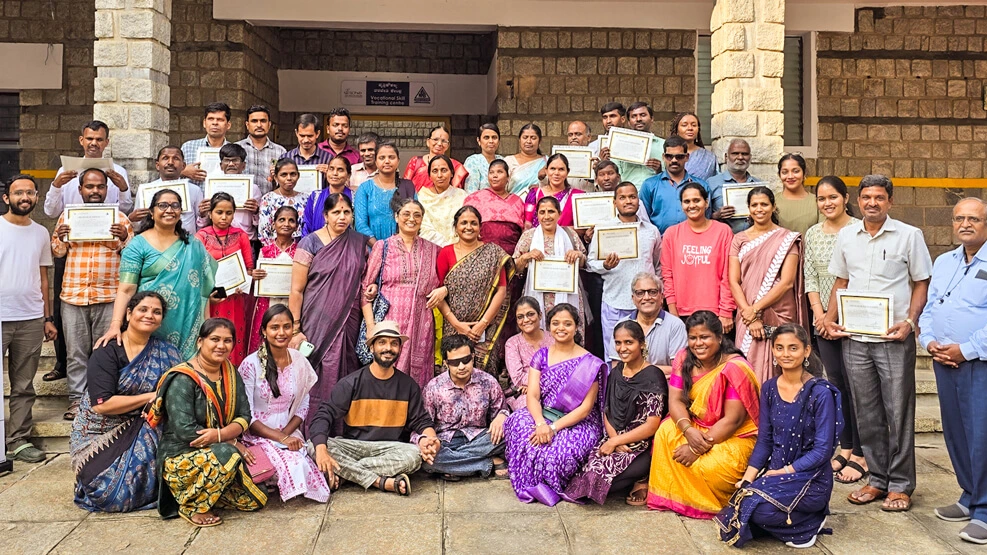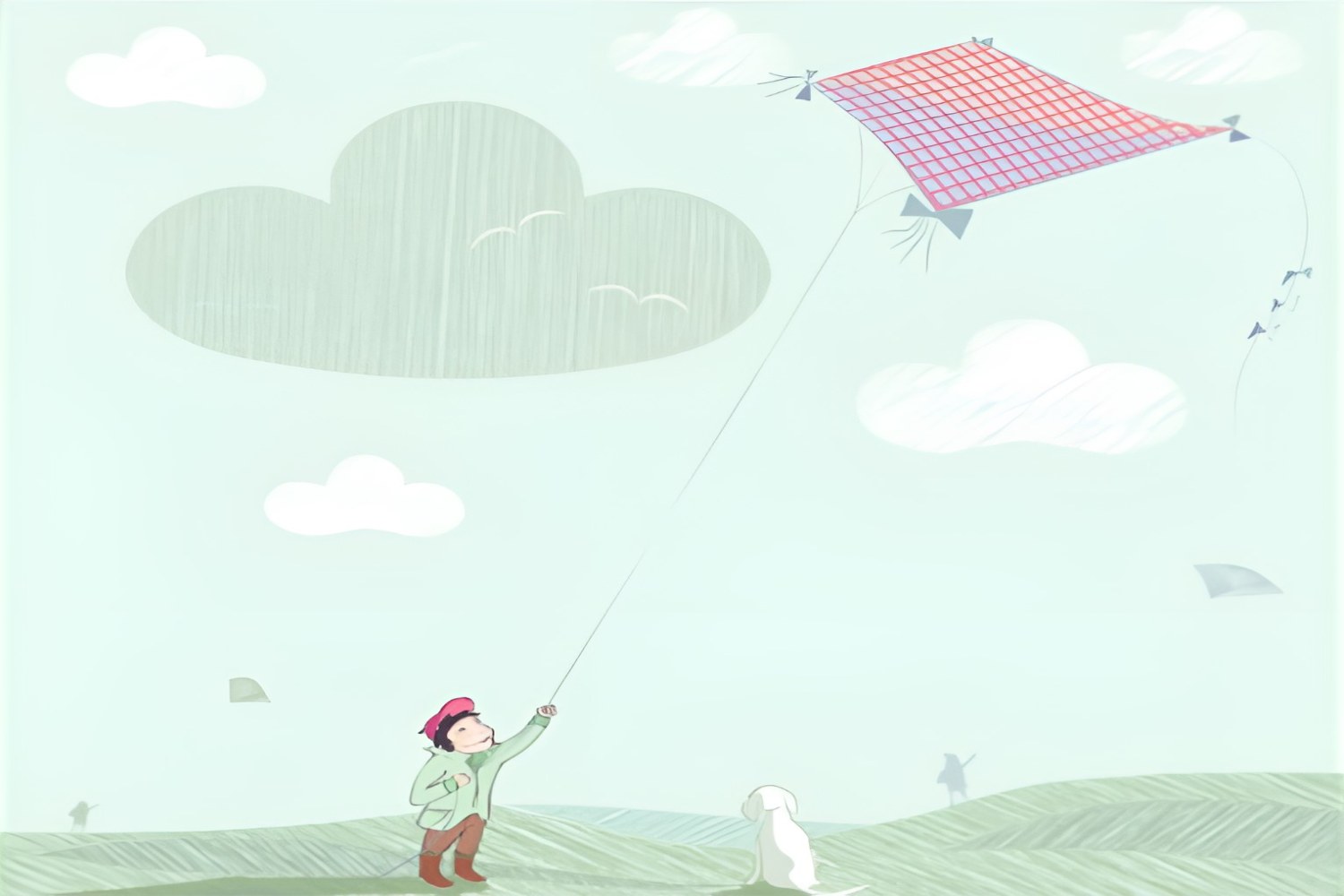Supporting the well-being of children with special needs in the context of the COVID-19 pandemic
Shamin Mehrotra, in his article, foregrounds the imperative of supporting the well-being of children with special needs and highlights ways of enabling this.

The last year has been an unprecedented time for everyone. The uncertainly and unpredictability that the pandemic has brought on has been hard for most people to respond to, and even more so for children with special needs.
India has over 50 million children with disabilities under the age of 15 (extrapolating from WHO estimates of 15% prevalence rates), with a therapist to child ratio of 1:427. It is no wonder then that children with developmental disabilities and their families are a marginalized group that often fall through the cracks. The pandemic has only exacerbated this situation.
For a lot of children with special needs and their caregivers, this has been an incredibly tough time. It has robbed them of the safety of their routines, in terms of school, play, therapy, social interactions, and so much more.
It has led many children and their caregivers to experience mental health concerns. For those with already existing experiences of other medical, physical and/or emotional concerns, this has been nothing short of a double whammy. It has made the experience of it harder, and the access to care and support that much more difficult.
What the challenges look like
The world suddenly witnessed an abrupt change with the onset of the COVID-19 pandemic which has impacted children across the world. While research has already shown that children with disabilities are at a higher risk of experiencing mental health issues, the pandemic has only heightened this concern not just for these children but also for their caregivers.
Many caregivers have reported increased household responsibilities and stress levels. These have taken a toll not only on their mental well-being, but the well-being of the entire family as well.
This, combined with additional stressors such as the loss of jobs/income and housing, along with increased debts (due to the loss of work), inadequate nutrition and limited access to medical care and other support systems such as therapy has only increased mental health concerns among most families as a whole.
Online schooling does have its own merits and has supported the learning needs for many children. But for several others, especially for those who experience disability, online learning has been a huge challenge.
The impact of COIVD-19 has also been evident with schools and colleges shifting classes online. Work from home has become a way of life throughout the globe. The ideas of social distancing and social isolation, have led to a lack of daily routine and structure, which often induces a sense of discipline as well as safety in children.
With school being online now, parents are struggling to manage children’s education, while balancing childcare and work demands. This can be particularly challenging for parents of children with disabilities. Learning and school participation of these children are often supported by a team of professionals such as special educators, remedial teachers and counsellors. Some of these supports have been discontinued, while others have been moved online.
The mental health of children with disabilities may be improved if information is made accessible to promote understanding and coping.
Online schooling does have its own merits and has supported the learning needs for many children. But for several others, especially for those who experience disability, online learning has been a huge challenge. For some, there may be a lack of adequate accommodations while for others, online learning is simply not an option. Families of children with disabilities are also more likely to experience socioeconomic disadvantages, including less access to the internet and technology.
The unpredictability of the pandemic, as well as the fact that information related to it has been new and often inconsistent, has also led to children experiencing significant levels of stress, discomfort and anxiety. Anxieties related to not knowing, to getting infected, to infecting others, to what might happen after one gets infected, to hospital care and accessibility, to death and related statistics, to precautions that need to be taken, are among the several thoughts that have been all-consuming for many children.
Overall, the uncertainty of the pandemic, the challenges of online learning coupled with a lack of recreational activities, limited peer interactions, social isolation, increased responsibilities on caregivers, and a lack of routine and structure have disrupted lives across the globe. These processes are more likely to disproportionately affect and further marginalize children and families with preexisting vulnerabilities.
How can we provide support?
Over the last year, parents and caregivers have been faced with the task of helping their children and families adjust to a new normal. This includes trying to keep children occupied, feeling safe, attempting to keep up with schoolwork as best as possible and supporting their overall mental well-being. Given below are some ideas that can help caregivers support children during these difficult times.
Be a role model: Children often look to adults for guidance on how to respond to stressful situations. This can be a great opportunity for adults to talk to children about the importance of mental well-being and model for children problem-solving, empathy and compassion.
Acknowledge one’s own feelings of worry: As adults, being aware of, and acknowledging, feelings of worry, fear, concern and uncertainly is important. This process can support children and families to take the necessary actions required to reduce the negative impacts of illness related to Covid-19. It also supports children by making them aware that they are not alone in some of the feelings and fears they may be experiencing.
Make information accessible: The pandemic information has not consistently been shared in accessible formats such as closed captioning and sign language interpretation. This has ended up further marginalizing people with disabilities and increasing their health risks. The mental health of children with disabilities may be improved if information is made accessible to promote understanding and coping – for example, closed captioned videos explaining concepts such as social distancing.
Create a routine: Keeping a regular schedule provides a sense of control, predictability, calm, and well-being. It also helps children and other family members respect others’ need for quiet or uninterrupted time supporting an overall sense of safety and security.
Talk, talk, talk: Being available to answer questions children may have and what they are feeling supports their sense of wellbeing. Talking about ones’ own experiences of worry, what it looks like, how one would like to respond to it can support children in thinking of how they might want to address the worry they experience.
Have a ‘worry window’: Creating a specific window of time during the day to think about, talk about, and address concerns related to the pandemic can ensure that it is not something that is consuming ones’ thoughts all day. This window of time can be a time set aside for the family as a whole or time set aside by each individual member for themselves.
Build awareness and stay up to date: Children often imagine situations worse than reality. Therefore, offering developmentally appropriate facts to them can reduce their fears. While it is crucial to be honest and accurate, it is also important to keep information age-appropriate. Providing accurate information can also prevent stigma and discrimination related to Covid-19.
Advocate: Leverage available information to advocate for children with disabilities and their families.
What role can NGOs play?
During this challenging time, many NGOs have come together to cater to the needs of children with special needs and their families. NGOs can play a very instrumental role in supporting the well-being of children with special needs and a few ways are listed here.
Resource support: NGOs can provide support in terms of mobilising resources. These resources can be of a material form such as essential commodities and access to phone/internet/DTH services etc. These can also take the form of access to educational materials, information etc to address immediate needs of some of the families that require them. This can reduce the stress that the lack of such resources are causing, and, thereby address the immediate well-being of the children with special needs and their families. Another essential resource support that NGOs can provide is working towards building resources that spread awareness of self-care and hygiene during this pandemic for children with special needs in accessible formats that can alleviate the anxiety and keep them safe. NGOs can provide resource support in the form of providing information on how to ensure the general well-being of all children with special needs and their caregivers. This can be done by providing access to resources such as counselling support, information on accessing medical resources, information on coping strategies, psychiatric, psychological and social care etc.
Curation of safe spaces: The pandemic has brought words like quarantine, social distance, isolation into everyday vocabulary. While maintaining social distance is extremely essential during these times, it has also taken an enormous toll on the well-being of children with special needs. In these contexts, NGOs working with children with special needs can curate safe spaces where they can meet with friends, and have safe spaces for learning, well-being and socialising.
Advocacy for accessibility: A lot of materials available online and offline in terms of information, education etc is largely available in non-accessible formats. NGOs can work towards converting materials into accessible formats, and also ensure that all their own materials are available in accessible formats. NGOs can advocate for, and share information on, how to turn materials into accessible formats. This can go a long way in reducing anxieties and promoting the well-being of children with special need by removing barriers.
Coming together to support the wellbeing of children with special needs: Civil society, NGOs and public officials needs to come together and work in a united way to ensure that children with special needs are supported. This can create a support network where various entities can collaborate and invest in the well-being of such children.




No approved comments yet. Be the first to comment!